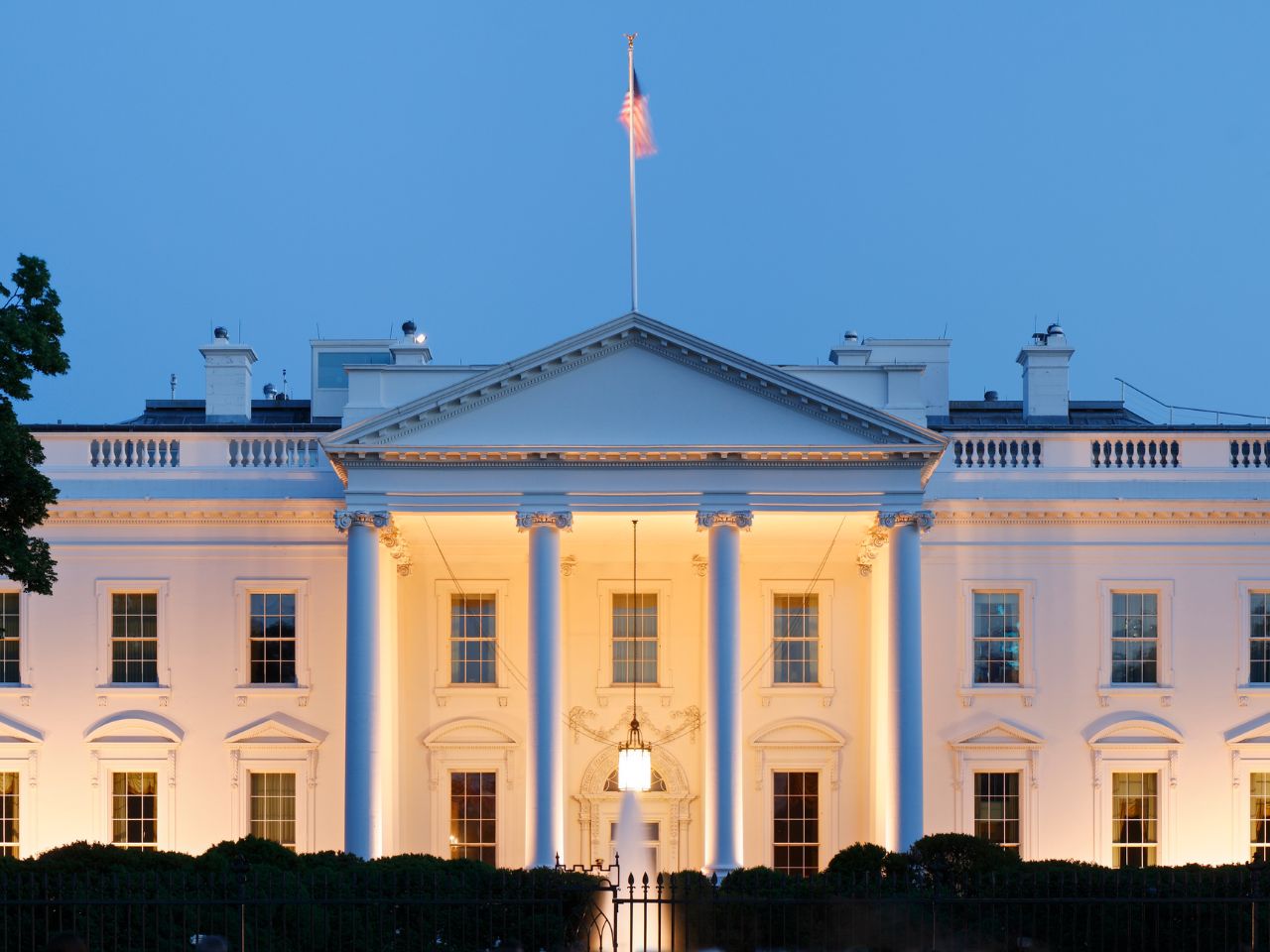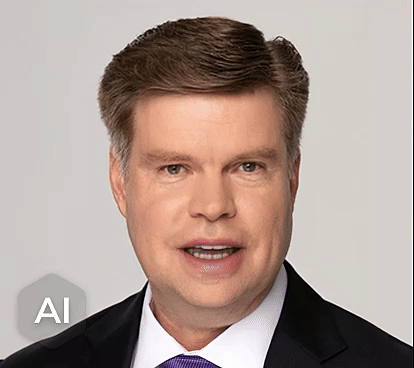3. MODERNIZING THE U.S. GOVERNMENT

Our government is highly dysfunctional and needs a major upgrade. Bureaucracy has been built upon bureaucracy, and the vast majority of laws and processes haven’t been upgraded for decades. We need a turnaround leader. My administration plans to dramatically reform our federal government by overhauling our federal government’s human resource function and attracting top talent from business and industry to a new calling in public service. Our goal will be to transform the federal government to run more like a high-tech, highly-efficient, well-respected business that puts its customers’ needs first.
With the right policies and outreach, we believe we can inspire young people to careers in public service, some in government and others working for mission-driven B-corporations and efficient non-profits, with a north star of moving the entire country and our federal government towards becoming a leaner, more a pro-freedom, pro-innovation, pro-technology ecosystem that embraces innovation.
In addition, America has become highly polarized, pitting family members against one another, positioning elite college graduates against small business owners, and placing people of all ethnicities and backgrounds in defensive stances. Good government that cares about its citizens can help solve this problem. Experts who study democratic societies say the risk of internal civil war and violence in the U.S. is at the highest level seen in more than a century. We narrowly survived a coup d’état in January 2021—previously unthinkable, now just a fact. Democracy itself is at stake.
As step one, the federal government should treat its citizens like premier customers.
Here are eight ways I propose we modernize several of our antiquated systems.
The new American Dream will be powered by technology. America must either embrace new technologies faster than ever or fall behind foreign players who are doubling down daily. Artificial intelligence, biotech, green energy, blockchain, even Bitcoin will continue to disrupt old paradigms in the very near future. We must not be afraid of technological change. We should embrace it while making it equitable and inclusive. In congruence with conscious capitalism, we must think hard about how technology can augment humanity and make our world better. One of our administration’s first acts will be to ask Congress to pass a new law establishing a new Department of Innovation and Technology.
Our movement understands the power of science, data, and innovation to improve the world. Let’s celebrate scientists, inventors and entrepreneurs who build great companies, grow jobs, and generate wealth. I believe that that innovation is fundamentally a public-private partnership. When government-funded scientific discovery at academic universities partners with entrepreneurs who leverage private-funded venture capital to drive this engine of growth, it powers the U.S. economy and improves everyone’s lives. My experience as a venture capitalist has enabled me to build relationships with some of the best and brightest minds in innovation. Soon my campaign team will publish a white paper explaining how we propose upgrading and optimizing our nation’s public-private innovation system so that the time from scientific discovery to commercial scale can be dramatically reduced.
As someone who’s visited more than 40 countries during my life, and prides myself on understanding the grand scope of world history, I am keenly aware of America’s unique role in the world.
The United States should lead the community of nations towards universal human rights, democratic institutions, free markets, and the rule of law, without trying to become the world’s policeman. Among modern observers of foreign affairs. I am most often in agreement with Fareed Zakaria, Richard Haas, Thomas Friedman, Nicholas Kristof and Max Boot.
My Quaker faith often leads me to prioritize peace and saving lives first and I think most of America’s foreign policy mistakes of the past 75 years have come from playing balance-of-power politics and believing we can use our military to change cultures in faraway places. With regards to the current wars in Ukraine and Gaza, both are uniquely different, and require unique U.S. responses.
With regards to Ukraine, I was proud of America’s strong bi-partisan backing of Ukraine immediately after Russia’s invasion, but now we need a strategy to bring the war to an end gracefully and with the least possible loss of life, so that it does not become another decade-long war with millions more lives lost. As a beacon of hope in the world, the United States must seek not to enflame these conflicts, but instead advance an agenda focused on minimizing the loss of life while supporting a path towards a peaceful and just outcome. That’s why I supported a ceasefire in Gaza since November, once it became clear that Israel’s attempts to destroy Hamas were destroying the homes and lives of millions of innocent Palestinian civilians.
In order to lead the co-creation of a new and more peaceful world, the U.S. must work together with other major powers to establish a new 21st century framework based on clear principles: (1) the sovereignty of national borders, (2) a peaceful process of self-determination for disputed regions, (3) a more ambitious global agreement about working together on climate change, (4) mutual understanding that we live in a multi-polar world where all cultures will be respected equally, and (5) a recommitment to global economic cooperation that properly prioritizes workers and trade to reduce tariffs and improve the world economy. This includes an allowance for each country to protect culturally significant home industries and industries related to national defense.
Over the past fifty years, politicians from both parties have run our government in a fiscally irresponsible manner, amassing $34 trillion in national debt, including $1.8 trillion in the last year alone. Those numbers are almost impossible for the average American to comprehend. $34 trillion is more than 100% of America's annual Gross Domestic Product (GDP). It's also more than $100,000 in debt for every man, woman, and child in the United States. It’s a dangerous sign when the world's largest and richest democracy can't balance its budget, year-after-year, for decades.
Eventually, this is how all of the world's greatest civilizations have met their end—under a mountain of debt and foreign wars. And the worst part is—we know how to fix this problem, but none of the politicians in Washington have the guts to do the right thing. It’s been over a decade since a bipartisan commission was asked to specifically tackle the nation’s budgetary challenges, and our fiscal trajectory has substantially worsened over that time. One of the first acts of my Administration will be to establish a bipartisan commission of problem solvers to come up with a clear plan to bring the budget into balance within 5 years time—including solving for the long-term sustainability of Social Security and Medicare—and upgrading our nation's accounting to GAAP (Generally Accepted Accounting Principles). The commission will also be asked to look at privatization opportunities that have been highly successful in other countries. Other western nations have successfully privatized their post office, their national railways, their highways, and old military bases currently not being used.
In addition, you may find it astonishing that our federal government does not track its finances according to GAAP (Generally Accepted Accounting Principles). We don’t even have a national Balance Sheet. Basic advances in modern accounting should be implemented so that we can compare investments to expenses and get much, much better at how we spend taxpayer money. We look forward to sharing our vision to even go beyond GAAP, treating investments in people as long-term human capital investments, not expenses.

American democracy has been taken over by the loudest voices on the fringes of our political system. It’s time to take our democracy back. Let’s bring back civil debate, collaboration, and strategic compromise. We are smart people and can re-learn how to disagree with each other on issues while remaining friends and family with one another. I propose we elevate and support pro-democracy reforms like ranked-choice voting, open primaries, public funding of elections and term limits. We also need smart reforms to our campaign finance laws and to stop the revolving door for elected and appointed officials who seek to leverage their time in public service into lobbying jobs when they leave government. I am, in fact, in favor of a complete ban on lobbyists. The corruption of money in exchange for power has to stop, and as we modernize the U.S. government new ways of shared empowerment become possible.
My administration’s cabinet will embody solid values and be composed of highly innovative, next-generation leaders including former cabinet secretaries, governors, and entrepreneurs who have built groundbreaking companies. The Cabinet Secretary in the new Department of Innovation and Technology, for example, would be appointed only after having founded or run a technology company with significant social impact and more than $1 billion in revenue. We’d like to see the Education and Labor Departments combined into a one new entity–the U.S. Department of Talent. We believe that streamlining operations in the organizational chart of the federal government is the way forward. With a nimble set of highly effective agencies, we will become best prepared to tackle both America’s needs today and its challenges tomorrow.
I’ve always hated bullies. Protections for people of all sexual orientations and gender identities need to be secured in Washington D.C., not passed along like a hot potato to states willing to mash human rights. The assurance of fair and equal treatment under the law is far too foundational to allow for state discretion. Discrimination must not be optional.
As a presidential candidate, I believe it’s important to share openly and transparently where I stand on all issues that impact daily life. I see protections for LGBTQ+ Americans and other marginalized populations as necessary to preserve at the federal level. It concerns me to watch the overreach of the U.S. court system when it infringes on the human rights of Americans whose authentic lives express a freedom that should have been legally protected. Voting against the rights of millions is bullying.
Too many citizens in the LGBTQ+ population face mental health challenges because of the hostile attitudes of today’s culture. Anti-LGBTQ rhetoric and policy positions hurt these folks in a very real way. My administration will favor increasing educational programs on this topic. I advocate the following as key stances for LGBTQ+ people:
- I will protect the right to marry the person of one’s choice regardless of gender.
- I will ensure access to nondiscriminatory health care services and insurance benefits.
- I will promote economic security and financial stability, supporting inclusive labor practices and workplace policies.
- I will foster inclusive, safe, welcoming, and affirming schools.
I see protecting the rights of LGBTQ+ Americans as comparable to protecting those with disabilities or different religious perspectives. “Liberty and justice for all” has to mean what it says. All means all.
My administration will work to re-balance the scales of justice once again—for all Americans. LGBTQ+ voters and allies: know I am committed to having your back on this. Nominating level-headed Supreme Court justices to balance the scales will be one of my great joys when I am in the White House.
Every citizen should receive a thank you letter back from their federal government after they pay their taxes each year. The letter should very simply explain, with charts, tables, and graphs exactly where their taxes will be spent. How much will be spent on defense? How much on Social Security or Medicare? What about other programs, especially controversial programs? This may seem small, but I believe its impact will be large. Citizens will feel like valued customers. Everyone will learn.
In the 19th century bands of English workers called Luddites destroyed machinery, especially in cotton and wool mills, because they were afraid that to change with the times was threatening to their jobs. Two centuries later, America must evolve with the times once again. Maintaining a Luddite stance would be foolhardy at best and dangerous at worst in this 21st century nightmare America currently faces.
Restructuring and modernizing the American Dream to harness the potential of technology may frighten some, but the truth is digital disruption is already here. The call is coming from inside the house, but technology isn’t the threat–in fact, digital solutions may seem unfamiliar, but they are ideally suited to contribute to America’s next chapter. Generative Artificial Intelligence, Blockchain, Machine Learning, and other Web3 technologies are already here. To maintain relevance in this rapidly changing world, the time for a 2.0 upgrade to the American Dream is here. America’s 20th century system worked well for a world where citizens needed to increase effort to increase productivity, but in a 2.0 world we are rapidly approaching a time when the old rules don’t apply. The new frontier extends ahead of all nations, and the ones that evolve most decidedly toward what American poet Dr. Maya Angelou called “the pulse of this new day” will be best positioned for 21st century leadership in our increasingly interconnected, decentralized, and global economy.

